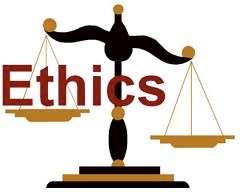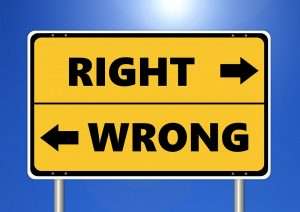What is an Employee Code of Conduct?

Your Employee Code of Conduct applies to all employees of your organization including officers, directors, and employees of the company and its subsidiaries and affiliates. Your Code of Conduct is a key governance best practice that guides your business policies, procedures, and practices. It is in the best interest of your company and its stakeholders that you adopt and implement a Business Code of Conduct to, among other things, help ensure compliance with standards, laws and regulations applicable to all business activities. So, what is an employee code of conduct?
Your Employee Code of Conduct Is Your Ethical Standard
Your Code of Conduct communicates that unethical business conduct, actions or even the appearance of unethical behavior is unacceptable under any conditions. The reputation of your company depends on each employee applying common sense in situations where specific rules of conduct are insufficient to provide clear direction. A strong sense of personal ethics, which should extend beyond compliance with applicable laws, is necessary to guide the behavior of all employees.
All employees should comply with the ethical standards of your company as set forth in your business Code of Conduct. If a situation feels awkward, then the employees should ask themselves:
- Is my action legal and ethical?
- Does my action comply with corporate policy?
- Is my action appropriate in the situation?
- Would my action be an embarrassment to the company, if known?
- Does my action agree with my personal ethics or behavior?
An employee should be able to answer “yes” to all of these questions before taking action or compromising themselves in the situation.
What Your Employee Code of Conduct Is Not

employment policies
It is not meant to replace your office policies and procedures. Your Code of Conduct is not a contract or employment agreement. Nor does it create any contractual rights between your company and its employees, or create any express or implied promise for specific treatment in any specific situation. But it is intended to support your employment agreements.
Employee Code of Conduct Outline
Your Code of Conduct program can be as simple as a one page responsibility statement for a small company (i.e. do no wrong) to an entire governance program including a full time ethics manager, staff or office. For those looking to create a larger ethics program then there are six areas to include:
1. General Business Conduct and Practices
- Accuracy, Retention, and Destruction of Business Records and Documents
- Financial Integrity, Fair Dealing, and Insider Trading
- Use and Protection of Company Assets
- Non-disclosure and Confidentiality
- Patents, Trademarks, Trade Secrets, and Copyrights
- Use of Electronic Media
- Shareholder, Public, and Media Relations
- Political Contributions and Activities
2. Employment Practices Conduct
- Mutual Respect and Privacy
- Equal Employment Opportunity and Diversity
- Safety and Health
- Substance Abuse
- Harassment and Workplace Violence
3. Conflicts of Interest
- Employing or Dealing with Family Members
- Outside Business Interests and Ownership
- Outside Employment
- Giving, Accepting, and Soliciting Gifts and Entertainment
4. Compliance with Laws, Rules, and Regulations
- Antitrust
- Environmental Practices and Protection
- Advertising, Sales, and Marketing
- Obtaining Competitive Information
5. Relationships with Subcontractors, Suppliers, and Vendors
- Vendor Selection
- Vendor Confidentiality
6. Code of Conduct Administration
- Resources for Obtaining Guidance
- Reporting Questionable Behavior and Possible Violations
- Code of Conduct Waivers and Enforcement
- Incident Handling and Investigation
- Personal Responsibility Statement
Your Employee Code of Conduct Program
Your Employee Code of Conduct program can be as simple as a one page responsibility statement for a small company to an entire governance program. It is in the best interest of your company and its stakeholders that you adopt and implement a Business Code of Conduct within your employee handbook to help ensure compliance with applicable standards, laws and regulations.
Business owners and Managers are responsible for the ethical business conduct and behavior of their employees. Managers should consider the appropriate courses of action in terms of both ethical and economic factors. Each decision should be based on the guidelines provided in your Code of Conduct as well as their own personal beliefs of what’s right and wrong. Download Free Policies and Procedures to see how easy it is to edit MS Word Templates to build your own policy and procedure management system.
















Leave a Reply